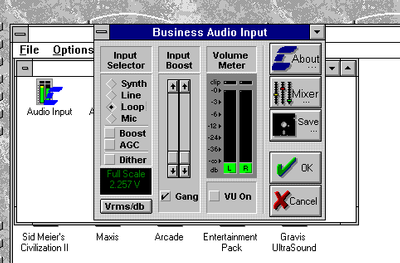Reply 860 of 897, by Renaissance 2K
I picked up an MP32L because I wanted to add some Roland magic to my setup (LGR is a helluva drug...) and connected it via the MIDI Out on the back of the Orpheus II. Got it all hooked up, and it's working, but it sounds both the MT-32 and the onboard wavetable (the one with the black PCB that came with the Orpheus I) are rendering audio, which is being stacked.
Admittedly, it sounds kinda cool, but still...
If I want just wavetable MIDI, I can disconnect the MP32L in one of a myriad ways. What if I just want MT-32 MIDI, though, and don't want to open up the PC and disconnect the wavetable? From reading the home page docs, would moving J2 (Wavetable) on the Orpheus II to the 2+3 (CS4237) let me choose between MT-32 or Wavetable by changing the device in a game's setup program?
I'm still tumbling down the rabbit hole and learning things as I go, despite the card's "for experienced users warning", so I appreciate the ongoing assistance. I had no idea these old machines were capable of so much.
Thanks.
